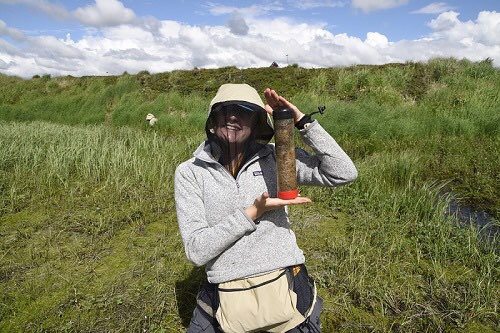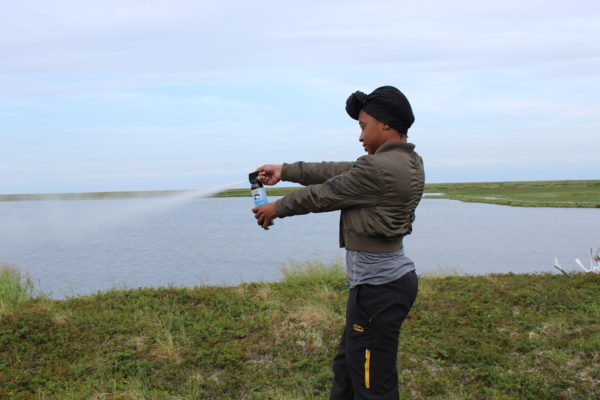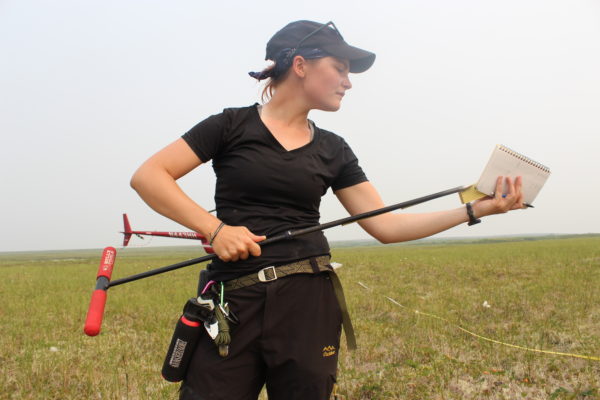 I only have about 30 minutes to write this blog post before I have to process some soil samples. As I write this, I am shoveling an obscene amount of chili into my mouth and washing it down with fresh, warm biscuits. Our camp chef, Robin, is a blessing. Approximately one hour prior to this luxury, I was laying on the spongy moss ground of the Yukon-Kuskokwim tundra, covered in mosquito netting, legs aching, staring at the sky, and trying to muster the energy to walk back to the Polaris campsite. I spent the day wading through marshy fens and drilling into active layer, which is the thawed-out soil above a permanently frozen layer of ground (a.k.a. the permafrost), to gather information about soil carbon in different areas of the tundra. Just 24 hours prior to picking up that drill, I landed on the Yukon-Kuskokwim delta and was still unsure of how I was going to answer my research question, which is now loosely “how does carbon vulnerability differ according to ecotype across the Kuskokwim watershed?” A month prior to that, I had no idea how I would ever come up with a question, let alone an interesting and relevant one. I would not have been able to develop a question, refine it to where it is today, gather the samples to answer my question, or will myself off the ground in my exhaustion, without the constant prodding of the faculty supporting and supervising me.
I only have about 30 minutes to write this blog post before I have to process some soil samples. As I write this, I am shoveling an obscene amount of chili into my mouth and washing it down with fresh, warm biscuits. Our camp chef, Robin, is a blessing. Approximately one hour prior to this luxury, I was laying on the spongy moss ground of the Yukon-Kuskokwim tundra, covered in mosquito netting, legs aching, staring at the sky, and trying to muster the energy to walk back to the Polaris campsite. I spent the day wading through marshy fens and drilling into active layer, which is the thawed-out soil above a permanently frozen layer of ground (a.k.a. the permafrost), to gather information about soil carbon in different areas of the tundra. Just 24 hours prior to picking up that drill, I landed on the Yukon-Kuskokwim delta and was still unsure of how I was going to answer my research question, which is now loosely “how does carbon vulnerability differ according to ecotype across the Kuskokwim watershed?” A month prior to that, I had no idea how I would ever come up with a question, let alone an interesting and relevant one. I would not have been able to develop a question, refine it to where it is today, gather the samples to answer my question, or will myself off the ground in my exhaustion, without the constant prodding of the faculty supporting and supervising me.
The Polaris Project, thus far, has been a runaway train of ideas, prompted by a group of insane conductors, the faculty. I have never been forced to think so critically, nor have I ever been so inspired by the people and landscape surrounding me. I hope that the rest of my time here on the delta, and subsequently at Woods Hole Research Center, continues to be as hectic and productive as it has been so far.
– Polaris Project student Annie McElvein, University of California-Berkeley



